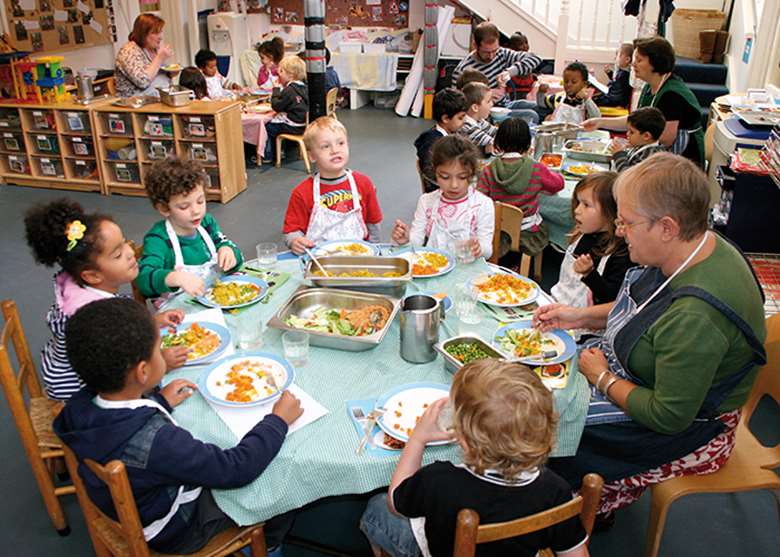Preparing for 30-hour childcare
James Hempsall
Tuesday, November 22, 2016
Following the government response to the consultation, issues remain over how the policy will work.

The delivery of the extended free entitlement to 30 hours in September 2017 will be a challenge. Many may feel it insurmountable, but I think they will be surprised about the reality.
This is not to dismiss the practical, financial and operational details we will need to revisit. But we have seen many examples of how providers have developed solutions, both in the eight "early implementer" sites and in other areas where preparations for the introduction of 30 hours are well advanced.
I am excited about leading Childcare Works, the national support programme to help settings and councils work together to create sufficient places to implement the 30-hours policy.
We have been working with hundreds of providers and many local authorities over the past year to test out what needs to happen. This has created plenty of information and resources to share.
The publication this month of the government's consultation response on delivering 30 hours marked the start of our contract with the Department for Education. The consultation response identifies key areas to address:
- Flexibility over how the offer is delivered
- Access for children with special education needs and disabilities (SEND)
- Efficiencies in delivery models
- Improving access to information.
Funding is still the main topic of conversation. Yes, there is more funding, and yes we have been asked to use it differently, but we are all being asked for much more delivery in return. However, our work with voluntary providers in Northamptonshire increased their financial reserves by 65 per cent over two years. These efficiencies, without compromising quality, leave settings in stronger health.
I agree that the more you fund early years, the more return on your investment. I was encouraged to hear childcare minister Caroline Dinenage recently say that the national early years funding formula is "not finished yet". The effectiveness of this to also resource the needs of children with SEND will be fundamental.
How we do more to meet working families' needs - and those wanting to work - has caught my attention. Part of that task is better understanding working hours, and the demands of employment across all sectors and levels of income, especially low incomes. We also need to show non-working families the benefits for them and their children of entering the workforce.
However vitally important children's early learning is, we need to manage multiple outcomes, and parental employment is one of those. In return, the government should remember reversing unemployment trends in families takes time. You cannot make childcare available on Monday and expect a mother of young children to start work on Tuesday. It can take weeks, months, years or generations.
Grace periods
I welcome the introduction of a grace period should a family come out of 30-hours eligibility - only parents of three- and four-year-olds who both earn on average a weekly minimum equivalent of 16 hours at the national minimum wage, and less than £100,000 a year can receive the additional 15 hours.
This may happen if income falls, or jobs end or are lost. In entry level and low-income employment, there can be all sorts of fluctuations and uncertainties, and temporary contracts that make employment unstable. The one constant should be childcare for their children. So a grace period goes a long way to acknowledge such challenges.
The length of that grace period is yet to be clarified - further informal consultation will follow, we are told. I favour the end of the next term as a minimum, offering one to two terms for alternative employment or childcare arrangements to be made.
Many questions and issues have arisen from the experience of the areas piloting 30 hours:
- Many parents want to access the extended hours in single settings
- Where parents choose two providers, they will need to form concrete partnerships. Such new working relationships take work, it does not just happen
- What will be the demand for the maximum 30 hours?
- How many families will want to stretch it over the year, beyond the 38 weeks of term?
The world of childcare has changed significantly in the past decade. The market is not neatly sub-divided into 152 local authority areas in which families live and work. People move more. Providers have developed small and large regional and national chains, so standardised local authority-provider agreements are needed so that equality and efficiency is achieved across boundaries.
It is our role to ensure everyone has the right information to inform actions and decisions. The consultation clearly states providers can charge for discretionary items, such as drinks, meals or nappies, and asserts these charges should never be a condition of taking a free publicly-funded place. Families should be under no obligation, pressure or expectation to pay additional monies. But the disconnection between this policy, what providers want to do and how Ofsted inspects food in settings needs some work.
We need a joined-up strategy for food within the early learning entitlements. It is important parents have this information so they can make informed choices. I welcome the aim to do more with parents' childcare information, but it needs outreach and brokerage too.
Much can be done to prepare for 30 hours. What remains is the need for confirmation of the funding rate, so providers can plan with confidence and assess the financial requirements within their business plans, and achieve the appropriate balance of quality and sustainability.
- James Hempsall is national programme director of Childcare Works and director of Hempsall Consultancies




